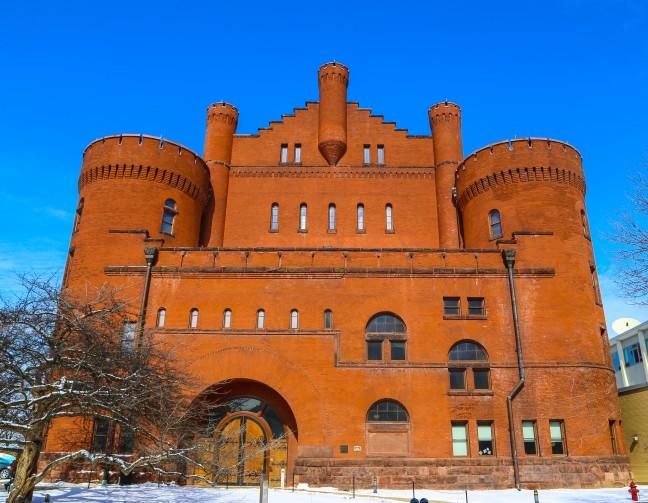The admissions process at the University of Wisconsin is an annual punching bag. Year after year, we see some bitter soul slam the university for being too favorable to minorities, or for calling Minnesota students “Wisconsin students” for the purposes of in-state enrollment numbers. When it isn’t being threatened by white suburbanites who are not academically qualified to attend the UW, the admissions office is often the subject of internal discussion and reform, usually trying to increase minority enrollment. Most recently, Chancellor Rebecca Blank called upon the university to attract more low-income and minority students to improve diversity on campus that, if you’ve taken a look around Bascom recently, is sorely lacking.
Group launches attack on UW admissions process, charging use of race illegal
Blank’s aims are admirable and we need to find solutions, but this is not a new issue and we continue to dance around the proverbial bush instead of getting to the root of the problem.
At its core, UW is not representative of students from Wisconsin. The median family income for admitted students from Wisconsin is $80,000, where the median family income for a family in Wisconsin is $50,000. That isn’t an accounting error or an anomaly; it is a systematic problem in attracting low-income students, which in Wisconsin typically means rural and minority students.
Milwaukee County, the most populous and poverty-stricken county in the state, has sent fewer students to Madison each year since 2007. Milwaukee County is also home to nearly 70 percent of Wisconsin’s black citizens. Each year in the Milwaukee Public School system (and to a lesser extent Madison Metropolitan School District), which is the most racially diverse district in the state, we are seeing that students are underprepared for college, and the many who are prepared often don’t even apply to UW fearing it to be too expensive or out of reach.
Some critics argue that it’s okay that UW’s student body is only 2.9 percent black students because Wisconsin as a whole is not a terribly diverse state. While true that Wisconsin is not a bastion of ethnic diversity, UW’s student profile is a perversion of reality. With Wisconsin’s black population over 10 percent, UW has done a woefully inadequate job of reducing the racial achievement gap in the state.

- Data from the University of Wisconsin System Student Statistics (Headcount Enrollment) of all UW students
Briana Reilly/The Badger Herald
As it often does, this most recent fight over the “right” amount of diversity at UW comes down to money. We need to increase financial aid for low-income students to make college education attainable and, as we’ve done before, we will probably increase out-of-state tuition to cover the gap. As Blank notes, many students from out-of-state apply to Wisconsin in addition to other, more expensive schools and many of them choose the more expensive school. This won’t negatively impact our diversity and will be a tool to improve the current state through additional funds for financial aid.
We can all agree that diversity in education is a good thing. I grew up in rural Wisconsin. Without exposure at the UW, I honestly would be unaware of the vast majority of issues in our state unrelated to rural poverty, hunting licenses or when I can or cannot drive a snowmobile on the road. In a world increasingly requiring interactions with vastly different communities, diversity is not just a component of education, it is education.
Blank is right in that we need to do better outreach to low-income and minority populations in Wisconsin, but that is the same tired refrain we’ve heard for years. I sincerely hope Blank can inspire change where previous chancellors’ efforts have languished, but this goes beyond putting up motivational posters and distributing pamphlets.

Briana Reilly/The Badger Herald
We need clear, decisive policy and strong leadership to extend the university’s beneficent influence to every family of the state in practice instead of rhetoric.
If you want your say in this process, join the campus community either Tuesday, Oct. 14 from 5:30 to 7 p.m at the Multicultural Student Center in the Red Gym or Wednesday, Oct. 15 from 11 p.m. to 12:15 a.m in Room 1306 Health Sciences Learning Center.
Adam Johnson ([email protected]) is a graduate student at the La Follette School of Public Affairs.














